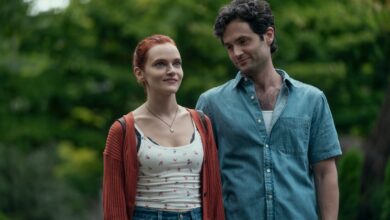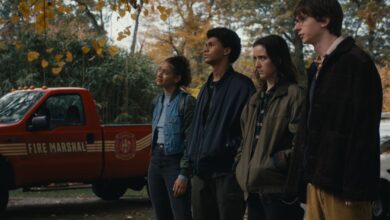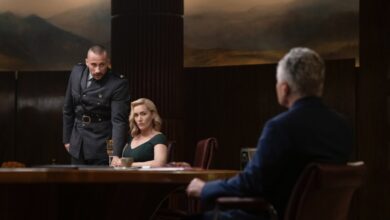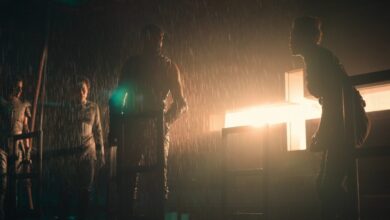The Crown Season 5 Ending Explained: Here How Does the 5th Season End? Understand Everything!
As of 2016, the consensus we have is that our notion of royal-based plots has been updated from The Crown. The Crown Season 5 arrived at Netflix series arrived shyly, without much fanfare and like any other production. However, it gradually conquered the hearts of fans and became one of the biggest successes of streaming. It is no wonder that, since the launch of the fifth season, several theories and conspiracies have emerged around the outcome of the episodes. The series should receive other seasons soon, but before that, we must correctly understand everything that happened at the end of this fifth year of production. Follow:
The Crown Season 5: Plot Summary
Close to the 40th anniversary of her accession to the throne, Queen Elizabeth II (Imelda Staunton) reflects on a reign that included nine prime ministers, the advent of television for the masses and the demise of the British Empire. But new challenges are emerging on the horizon. The collapse of the Soviet Union and Hong Kong’s transfer of sovereignty signalled a radical change in the international order and presented challenges and opportunities to the Monarchy… but new problems emerge not far from home.
Prince Charles (Dominic West) pushes his mother to agree to divorce Diana (Elizabeth Debicki), setting the stage for a constitutional crisis in the Monarchy. The increasingly separated life between husband and wife feeds numerous gossip. As media scrutiny intensifies, Diana decides to take control of the situation and breaks family rules by publishing a book that threatens Carlo’s public support and exposes the differences within the House of Windsor. Tensions rise when Mohamed Al Fayed (Salim Daw) enters the scene, driven by the desire to be accepted by the nobility, taking advantage of the wealth and power he has earned on his own to get a seat at the royal table for himself and his son. Dodi (Khalid Abdalla).
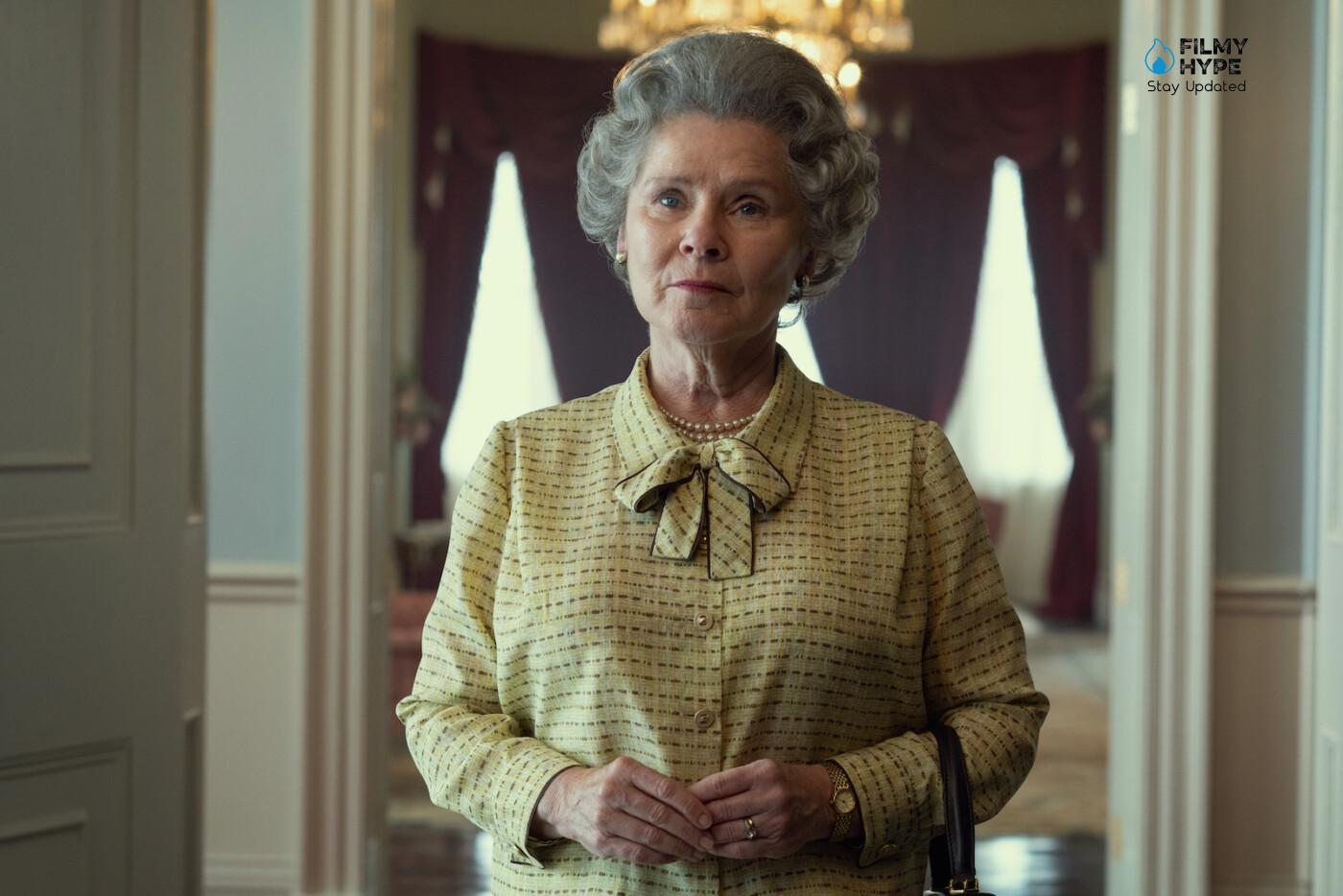
We are in the 90s, a fatal decade for the British Monarchy, under the eyes of all due to “court scandals”. Elizabeth, completely absorbed in her role, must try to manage the excesses of her children, systematically struggling with shipwrecked marriages, the relationship with Margareth, who always sees her split between affectionate elder sister and unshakable sovereign, a Philip who seems to have realized all that he lost by choosing to become the prince consort and above all her, Diana, that sad girl who will prove to be a real thorn in the side for the Crown, but perhaps Elizabeth after all, as a mother and a woman, a little ‘he understands.
As happened for the previous two seasons, also in The Crown Season 5 Peter Morgan chooses to proceed by episodes, once again changing the narrative structure of the series and choosing to dedicate each episode to a different drama and character. The impression is that as the series grows and progresses over the years he chooses to tell, its narrative plots expand, as does the range of characters he tries to tell. We are faced with a real choral story now, and now more and more, given the importance that the “secondary” actors assume in the big picture, such as Carlo, Camilla and Diana, for example. The greatness of The Crown lies in the refined writing of Peter Morgan, which consequently is reflected in the staging, the direction, on the interpretations of the actors who reveal themselves, even at this second change of guard, up to the task to which they are called.
The Crown Season 5 Ending Explained: The Beginning of The End
The chronological order of The Crown was properly set from this fifth season, which brings its last episode based on real events that took place until 1997. The impression that remains is that time jumps, which normally existed throughout previous seasons. At the end of season five, we see Dodi Fayed looking to buy a house in Malibu, Los Angeles, so he can live with his beloved Kelly Fisher. For this, he needs to face his father’s hard-headed, Mohamed Al-Fayed. Unfortunately, Dodi fails to achieve his goals. Meanwhile, Al-Fayed and Diana accompany the ballet, and soon after, they have a conversation. She vents about the directions her sentimental life has taken and starts making plans to feel alive. Meanwhile, Prince Charles organizes a party with Camilla Parker Bowles.
Royalty At Risk
Prince Charles panics over a TV show, which features a debate about the crisis erupting in the British Royal Family. The monarchy begins to be questioned and the prince decides to discuss the matter amid Queen Elizabeth II‘s birthday. It is a turning point, in which all family members are gathered. At this meeting, it was agreed that Prince Charles would become the royal representative after Hong Kong departs from British rule. Charles sees the situation as ideal for approaching the new prime minister, Tony Blair.
Queen Elizabeth II, on the other hand, is not successful in her first meeting with the Prime Minister, as she has a request explicitly refused. The officer is unwilling to review the issue of decommissioning the Royal Yacht Britannia. Charles’ trip to Hong Kong is successful and he can express exactly what he wants when it comes to plans to modernize the monarchy and give up certain rites. Tony Blair agrees with the plans and talks to his wife, Cherie, about his excitement for what’s to come.
Pressing The Brake
The Queen is informed of Charles’ meetings with the Prime Minister and invites him for a conversation. She wants to warn the prince about the consequences of his actions, especially regarding his relationship with Camilla. Elizabeth asks Charles for a description of his love life and he disputes his mother’s advice. Elizabeth takes the opportunity to reprimand her son about the meetings he has had with Blair, as the attitude demonstrates disrespect for the family hierarchy. They start a heated discussion on the matter, especially about the palace in which they are installed.
The Crown Season 5: Final Scenes
Finally, Princess Diana seems to remain willing to try to remake herself in the face of the storm her life has been facing. She plans a vacation to St. Tropez. Al-Fayed’s yacht becomes the nest of passion while Dodi and Fisher decide to exchange vows of love. Dodi takes the moment to ask Fisher to marry him. In the final scenes, the queen appears reflective of all the turmoil the royals have been facing. It is a time for resilience, but above all for a lot of coherence so that hasty decisions are not taken. Deep reflection from her shows concern and foreshadowing of what will likely be featured in season six.
The Crown: Is the Queen Of England And The Monarchy Sinking, Like The Now Obsolete Ship Britannia?
Season 5 of The Crown began with a succession of very beautiful shots of Queen Elizabeth’s face and body during a medical examination, ascertaining her health conditions and also her (increased) weight. An alternation of scenes triggers flashbacks in the past when the sovereign’s face was still young and similar to that of the beautiful Claire Foy (who played Lilibeth in the first two seasons): the connection between the present and the past is introduced, by contrast, emphasizing the entry of the Queen into her senility.
The season delves into a metaphor brutal in its explicit clarity, comparing the Queen and her monarchy to her adored ship, the Britannia. The first episode and the last compare and connect thanks to the discussion on the obsolescence of the crown, and the sovereign’s floating appendix. The monarchy experienced its annus horribilis due to the failure of three royal marriages: Prince Andrew and Sarah Ferguson, Princess Anne (Claudia Harrison) and Mark Phillips, together with Charles and Diana. Lilibeth, forced to bow to the wishes of her children, is also forced to say goodbye to everything she knew of the monarchy as such: a divine, dehumanizing institution, like religion. Even divinities age, especially when they are embodied by human beings, like grandiose metal ruins that have travelled too many seas: the metaphor and message of season 5 are certainly solid, effective, and fully displayed in the final episode, Dismissed.
Resigned, So The Final Episode Of The Crown Marks The End Of The Era Of Ideals And Leaves Room For Modernity
In Episode 1, The Queen Victoria Syndrome, when a poll decrees the monarchy obsolete and Charles is poised to become England’s next ruler in place of his ageing mother, Britannia takes her place as Queen Elizabeth II’s personification. The floating hotel is defined by Elizabeth of her as the place of her heart, her home, her only real enterprise as sovereign of the United Kingdom. When the head of the Tories and the British government, Prime Minister John Major, does not allow the sovereign to restore the vessel with government funds, the Queen will be forced to accept the inescapable reality: the Britannia will be broken up. The prophecy comes true in the finale, the opening scene of which covers a speech by the Princess of Wales on the monarchy, calling for its abolition.
Diana declares war on the royal family throughout the narrative arc, ending the season in total solitude, without William entering Eton college and without his court staff. The modern, sad princess represents the woman who faces the contemporary world, conceiving the end of marriage as an institution and becoming an example of the new femininity. Indeed, the woman of the 90s and 2000s will look much more like Lady D. than the Queen. In a last, romantic cruise on Britannia with Lilibeth on board, the season finale marks the end of the era of ideals and the beginning of a modern era in which the absolute falls apart in favor of the relative, of individualism and subjectivity. The empire falls apart and self-determination is born, the unbridled self-definition and the conception of the self as a being with the right to consume, have, grow, increase, and possess.
The security of a granite institution like the crown crumbles under the failure of the great ideas of the twentieth century: the family, fidelity, the church, and the kingdom. Britain’s latest turning point is the beginning of the era of loss for the Queen and her family. Outside John Major’s Tories and inside the liberal and progressive government of future Prime Minister Tony Blair (Bertie Carvel). And as the episode concludes with the sovereign seeking familiarity and solace in her “favourite house of hers,” Diana’s future is foretold with ominous signals from the directorial universe toying with audience attention.
The Tragic Fate of Lady Diana Written In The Last Images Of Episode 10
Starting from episode 3 of The Crown, Mou Mou, many clues are scattered here and there within the narrative to reconstruct the genesis of the friendship between Mohamed Al-Fayed and Princess Diana. A bond from which the love story between the entrepreneur’s son, Dodi, and Lady D. will spring in 1997. The beginning of the fatal union has not yet been shown by the Netflix series, but allusions present in the final episode (which ends a few months after the fatal event) write the dangerous dynamics that will lead to the death of both in the road accident of August 31, 1997.
Diana, left alone and abandoned to herself, away from her children who are often with their grandmother and father, turns to the Al-Fayed family for comfort and companionship. The rich businessman invites her aboard his yacht for the summer in Saint-Tropez, setting off the chain of inevitable events that we will witness in the episodes of season 6. The most emblematic scene of the last 50 minutes of the season is precisely the pursuit by the paparazzi after the ballet Diana attends by meeting Al-Fayed: a warning and a signal from the near future, a maximum alert for the princess and the public.


